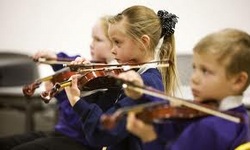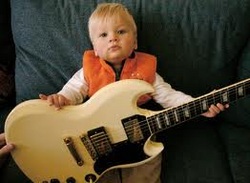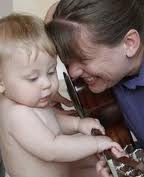
As a parent, you have high hopes and expectations for you child. That's perfectly natural. You want your kid to do better and to achieve more than you did. Basically, you want what's best for them.
I talk a lot about how music education can bring prosperity to your child's future. I would like to clarify what I mean by prosperity.
What I mean by prosperity is that music education will develop the skills necessary to succeed in life, regardless of what career your child chooses.
I don't want anyone to be confused here. What I don't want people to think is that music education will bring your child prosperity in the form of becoming a famous singer or musical artist. This is not the goal of music education. For me, prosperity is NOT becoming a celebrity.

Prosperity is an advantageous situation where your child will get the most out of his/her education, and enter the working world with the skills that will be required in the future global economy.
It has been scientifically proven that music education increase test scores in Math, Science, and Reading. But besides test scores and grades, your child would actually develop an understanding of those subjects that noticeably surpasses their non-musical peers. I can tell one thing with the utmost certainty: there will be jobs for people that have skills in those areas.
Beyond those three subjects, music education develops social and emotional intelligences, which are highly important in the working world. We all know what it's like in the work place. It can be a tough social environment. It's tough to get along with co-workers from time to time. It's tough to convince your boss that you deserve a raise. It's tough to convince your manager of your ideas and how they can benefit the company. There are a million scenarios where social skills will really be useful in achieving your goals. Developing these skills give a person an advantage to succeed in the work place, not to mention building relationships and friendships.
Another huge bi-product of music education is developing the creative side of the brain. Creative minds are needed in today's technology-driven, globally-connected economy, and they will surely be needed in the future. One of the biggest drivers of an advancing economy is innovation. Without creativity and new ideas, an economy would completely stagnate. That means less jobs for everyone. Those who can create will have a place in the future economy.
Your Child Will Succeed In Life
The most important idea that I want you to walk away with from this article is that music education will develop a portfolio of skills necessary for your child to prosper and succeed in life. The goal of music education is not to become a big star or famous musical artist, or even a singer. That's not the prosperity I'm talking about. The skills that music education teaches can be used in any profession that your children chooses when they grow up.
Economic prosperity in the future will be for the people with the most skill sets. Take action in getting your child started in learning a musical instrument. Your child's education will be enriched and he/she will be on a path towards that end goal of economic prosperity that begins with developing a bright mind. Download a free Ebook on "How Music Can Lead Your Child To Prosperity Through Music."





 RSS Feed
RSS Feed